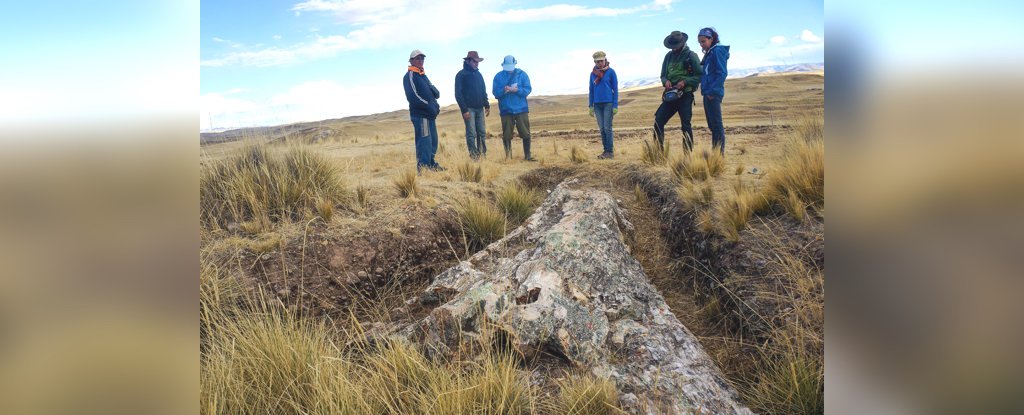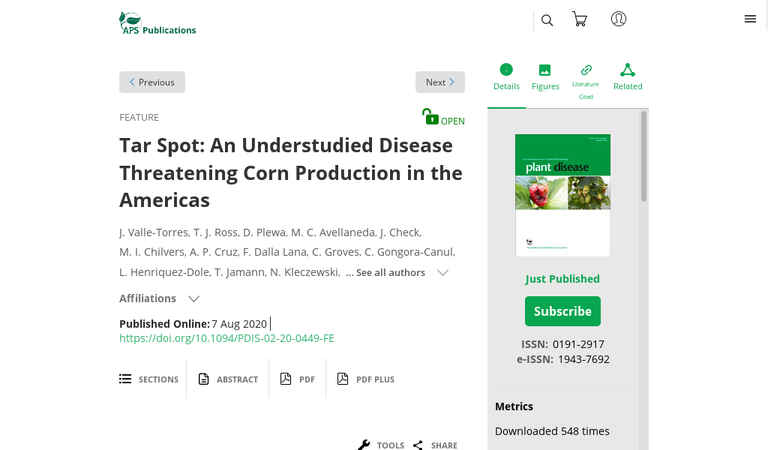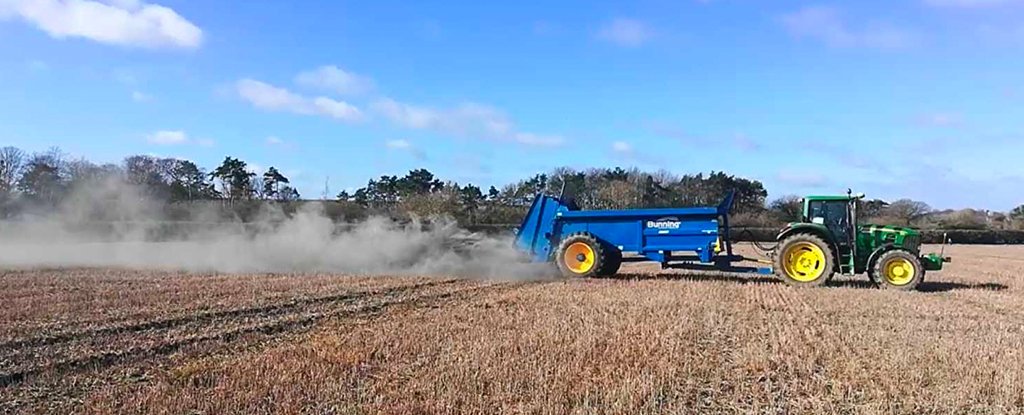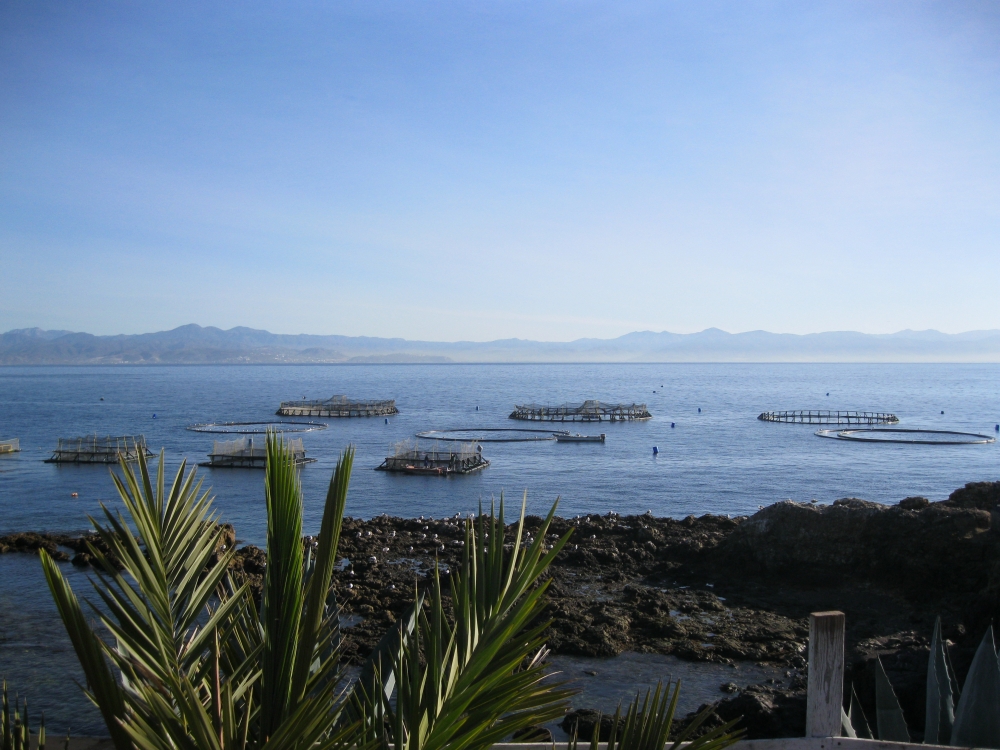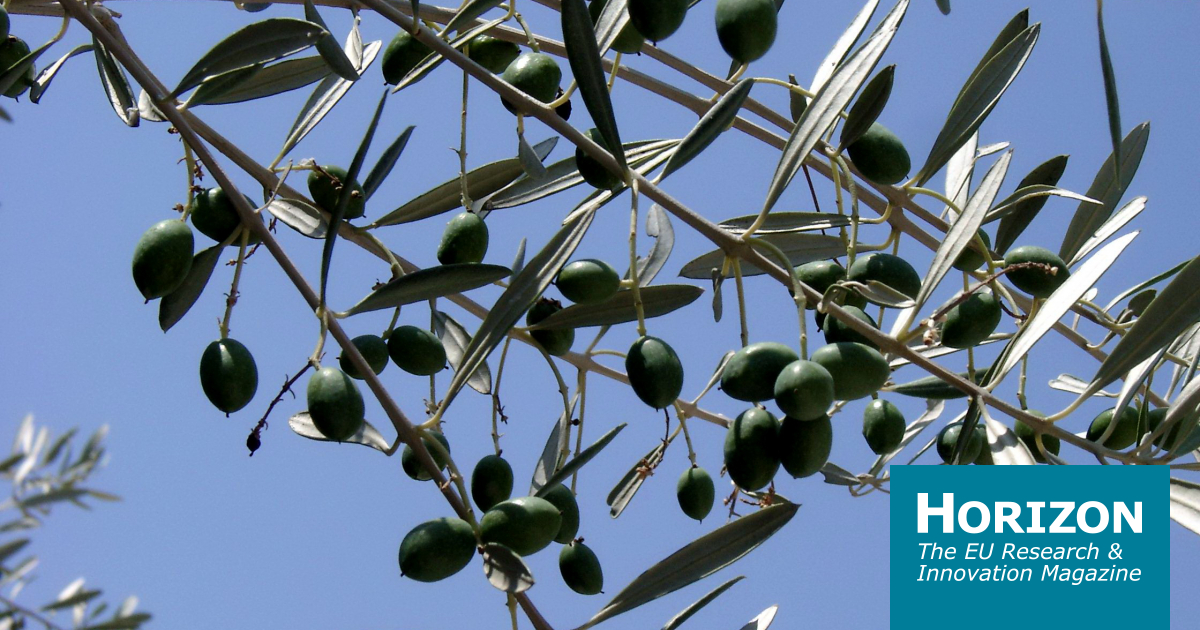 John LaRose Jr.
John LaRose Jr.
Topics: Forestry, Sustainability, Climate Change, World Population, Ag South America,
Giant 10-Million-Year-Old Fossil Tree in Peru Reveals Surprises About Ancient Past
Ecosystems like this no longer exist.
-
(0)
-
Bookmark
- Comments (0)
 John LaRose Jr.
John LaRose Jr.
Topics: Corn/Maize, Economics, Sustainability, Crop Diseases, Research, World Hunger, World Population,
Tar Spot: An Understudied Disease Threatening Corn Production in the Americas
Tar spot of corn has been a major foliar disease in several Latin American countries since 1904. In 2015, tar spot was first documented in the United States and has led to significant yield losses ...
-
(0)
-
Bookmark
- Comments (0)
 John LaRose Jr.
John LaRose Jr.
Topics: Agriculture US, World Hunger, World Population, Coronavirus/COVID,
Minnesota nonprofits plead for more help as hunger crisis surges
More are needing help, especially after the extra unemployment aid ended.
-
(0)
-
Bookmark
- Comments (0)
 John LaRose Jr.
John LaRose Jr.
Topics: Soil Health, Precision AG , Water, Economics, Research, World Hunger, World Population, Regenerative Agriculture,
Marlborough's gravelly soil could provide new understanding of liquefaction
Liquefaction research at Blenheim’s home of rugby could be a game-changer for Wellington’s waterfront and further afield.
-
(0)
-
Bookmark
- Comments (0)
 John LaRose Jr.
John LaRose Jr.
Topics: Soil Health, Water, Sustainability, World Hunger, Climate Change, World Population, Renewable Energy (Solar/Wind),
Simple Addition to Crops Could Help Soak Up 2 Billion Tonnes of CO2 Each Year
And we could use existing infrastructure.
-
(0)
-
Bookmark
- Comments (0)
 John LaRose Jr.
John LaRose Jr.
Topics: Conservation/Tillage, Water, Economics, Sustainability, Aquaculture/Fish Farming, Research, World Hunger, Government / Policies, World Population, Regenerative Agriculture,
100 Opportunities for More Inclusive Ocean Research: Cross-Disciplinary Research Questions for Sustainable Ocean Governance and Management
In order to inform decision making and policy, research to address sustainability challenges requires cross-disciplinary approaches that are co-created with a wide and inclusive diversity of disciplines and stakeholders. As the UN Decade of Ocean Science for Sustainable Development approaches, it is therefore timely to take stock of the global range of cross-disciplinary questions to inform the development of policies to restore and sustain ocean health. We synthesized questions from major science and policy horizon scanning exercises, identifying 89 questions with relevance for ocean policy and governance. We then scanned the broad ocean science literature to examine issues potentially missed in the horizon scans and supplemented the horizon scan outcome with 11 additional questions. This resulted in an unprioritized list of 100 general questions that would require a cross-disciplinary approach to inform policy. The questions fell into broad categories including: coastal and marine environmental change, managing ocean activities, governance for sustainable oceans, ocean value, and technological and socio-economic innovation. Each question can be customized by ecosystem, region, scale, and socio-political context, and is intended to inspire discussions of salient cross-disciplinary research directions to direct scientific research that will inform policies. Governance and management responses to these questions will best be informed by drawing upon a diversity of natural a...
-
(0)
-
Bookmark
- Comments (0)
09/07/2020 SOURCE: www.news.ucsb.edu
Strategy for sustainable aquaculture supports the world’s fastest growing food sector
A Framework for the Future
-
(0)
-
Bookmark
- Comments. (0)
 John LaRose Jr.
John LaRose Jr.
Topics: Precision AG , Education U.S. NorthEast, Beekeeping, Economics, Sustainability, World Hunger, World Population,
Bee neighborly — sharing bees helps more farmers
Benefits of cost-sharing the conservation of wild bee habitats with farmers can help overcome the tragedy of the commons
-
(0)
-
Bookmark
- Comments (0)
 John LaRose Jr.
John LaRose Jr.
Topics: Agriculture Global, World Hunger, World Population, Blockchain,
Smartphone, blockchain technologies to open new frontier in fight
Food fraudsters have found myriad ways to trick shoppers – from cheap horsemeat sold as beef to conventional apples labelled as organic. But new rapid testing and tracing technologies may help turn
-
(0)
-
Bookmark
- Comments (0)
09/07/2020 SOURCE: horizon-magazine.eu
On the southern outskirts of the city of Owensboro in Kentucky, US, there is a square, nondescript building. Inside, rows and rows of small plants are growing under artificial lights. This is a new
We can programme plants to grow biomolecules. Is farming the future
-
(0)
-
Bookmark
- Comments. (0)


